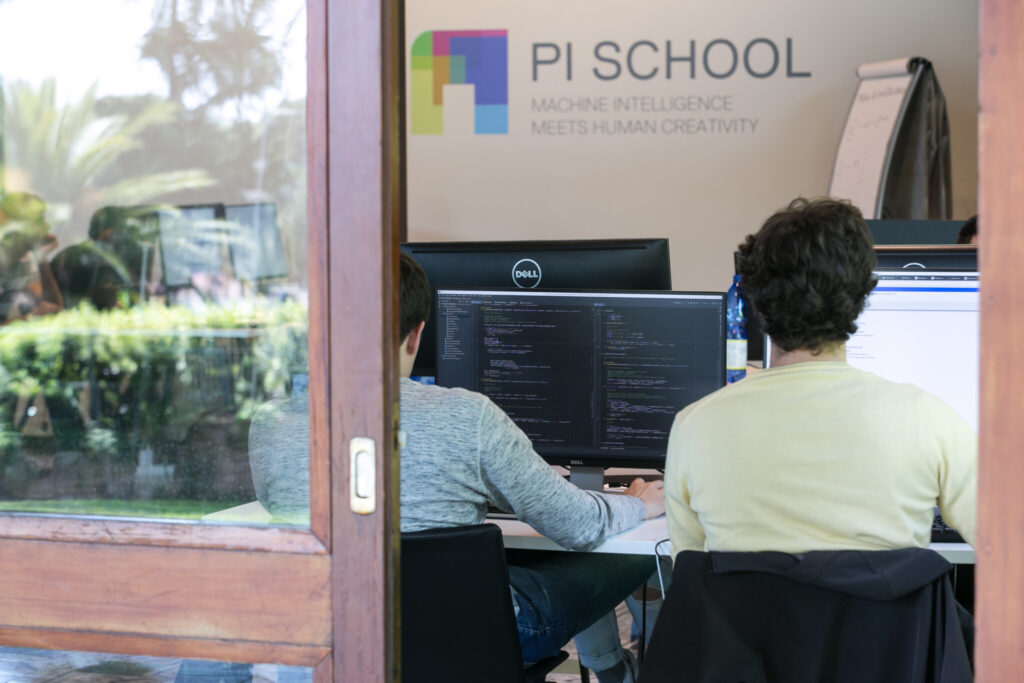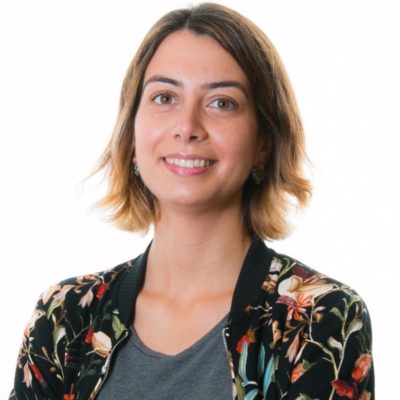Blog Post
A sneak peek into the future
By Marta Romão: Social Media Marketing Specialist at Pi School
Every generation grows up dreaming about the civilization of the far future. It might have been that some daydreamt of a society in which cars can drive themselves, late-night cravings get delivered to your door, or people could watch movies in video calls with long-distance friends.

I always thought I wouldn’t have to fear the future as, at least, I could end up writing virtual letters for other people, like Joaquin Phoenix’s character in the movie Her. But it seems like we are not quite there, and, instead of taking that direction, the future holds other faith for us.
On the one hand, this year of 2020 failed many expectations set by sci-fi movies when companies weren’t even ready to have their workforce working remotely during a world pandemic. But on the other hand, it accelerated the shift of mentality: the great engine of transformation.
At Pi School, I feel like I got the best seats to watch the future happening, as I see the advanced AI-based projects that are developed by brilliant international minds. I get to have a preview of the wonders of the future that awaits and that, at this pace, I would be here to watch it coming.
Let me share four examples of the over 50 projects developed at Pi School, hoping you will think that rather than being close to the apocalypse from Dark, this 2020 will open the doors to different worlds.
Baby heartbeat and breathing rate estimation from video streams
Imagine you are a new parent passing through the first sleepless nights and anxieties of the responsibility for a new life. When your baby finally falls into sleep, and your eyes start closing, you keep worrying about their vulnerability, out of your watchful eye. Sponsored by Priya Tech, a company that develops technological home devices, the engineers Bryan Saldivar and Chidera Mosanya, applied the latest AI technology to improve baby monitoring through facial recognition from video. A project that can reduce the risk factors that can cause accidental suffocation or Sudden Infant Death Syndrome, using the images of the video device to check factors such as sleeping position, temperature, heartbeats or breathing.
Air pollution forecast from satellite images
In many urban areas, people have to adapt their outdoor activities according to the air quality on a specific day. It’s not uncommon for people in Madrid to postpone their evening jog when the air is too polluted, and the city hall also limits traffic until the sky gets cleaner. An accurate forecast is essential not only to manage public health issues, but it can also be crucial in responding to environmental disasters, such as fires or volcano eruptions. Watching us from up above, the European Space Agency (ESA) sponsored the engineers Luka Sachsse and Maximilien Houël to improve a weather forecasting model based on earth observation data and developed with deep-learning techniques.
Automatic document analysis
Two centuries after Taylorism, many workers are still trying to break the chains of repetitive and automatic tasks. Consider that paperwork (in actual paper!) is one of the most time consuming, labor-intensive tasks, leading to more human error. To free employees from routine work and allocate them to something only humans can do, Enel, an energy group operating in more than 30 countries, sponsored the work of the engineers Ionelia Buzatu and Abderrahim El Bouziady at Pi School. In this project, they improved the accuracy of decode barcodes from scanner documents, developing an integration of AI in the daily business work that benefits both the company and the employees, leading us one step closer to the future.
Opening up the Vatican Secret Archive
One of the largest and oldest historical archives in the world, the Vatican Secret Archives, is home to some of the most valuable documents such as Galileo Galilei’s trial paperwork and Henry VIII’s marriage annulment request. The Archives became less secret thanks to Elena Nieddu, and her research team of University Roma Tre, who explored machine learning to read old medieval manuscripts. Interpreting historical documents is a hard task that requires a niche expert knowledge, and only an automated solution could make it viable on a large scale. Since this pitch presentation at Pi School, Elena Nieddu has been in the TensorFlow Dev Summit in California to explain how more historians and researchers can now read history.
Either you’re a dreamer picturing yourself in the halls of the Vatican best-kept secrets, or imagining the next technological home device you’re adding to your shopping cart, know that the future is around the corner bringing significant improvements on today’s version of life.
I will keep writing some lines from the front-row and invite you to join the ride if you are an outstanding engineer or a company ready to lead the technological transformation.
-

Marta Romão
Social Media Marketing Specialist